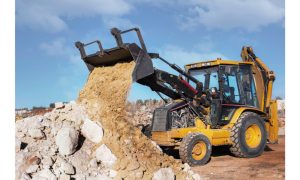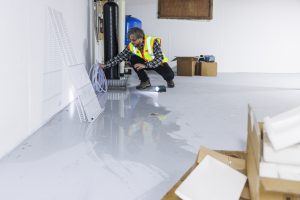When temperatures drop, homeowners rely more on space heaters, fireplaces, and electric blankets to stay warm. While these comfort items make cold days bearable, they also bring an increased risk of fire. Winter is the most common season for house fires, and many of them start from simple heating mistakes that could have been avoided. Learning how to use heating equipment safely is one of the best ways to protect your home and family.
Why Fire Risks Increase During Winter
In the winter, heating equipment is the second leading cause of home fires after cooking. Many homes use portable heaters to warm specific rooms, but if placed too close to flammable materials, they can easily start a fire. Space heaters also draw a lot of power, which can overload electrical outlets or cause wiring to overheat.
Fireplaces, though cozy, can become dangerous if chimneys aren’t cleaned regularly. Creosote, a sticky black residue from wood smoke, builds up inside and can catch fire when temperatures rise. At the same time, using candles during power outages or plugging too many devices into one outlet can add even more fire hazards.
How to Prevent Space Heater Fires
If you use a space heater, always place it on a flat, solid surface away from curtains, bedding, and furniture. Keep at least three feet of space around the heater on all sides. Choose models with automatic shut-off features that turn the heater off if it tips over or overheats.
Never leave a space heater running unattended, especially while sleeping or away from home. Plug it directly into a wall outlet rather than an extension cord, which can overheat easily. Before turning it on, check the cord for frays or damage, and replace it if needed.
Fireplace and Chimney Safety Tips
Before lighting your fireplace for the season, have your chimney inspected and cleaned by a professional. This helps remove creosote buildup and ensures there are no blockages or cracks that could cause smoke or flames to spread inside your home. Always use a fireplace screen to prevent sparks from escaping and landing on carpets or furniture.
When burning wood, choose dry, seasoned logs instead of freshly cut wood, which produces more creosote. After each fire, make sure ashes are completely cool before disposing of them in a metal container stored outdoors and away from the house.
Avoiding Electrical Overloads and Power Hazards
Winter often means plugging in more appliances and decorations, but too many devices on one circuit can cause an overload. Use power strips with surge protectors and avoid daisy-chaining multiple extension cords together. If your lights flicker or outlets feel warm, unplug devices immediately and have an electrician check your wiring.
Keep an eye on older appliances and replace damaged cords or plugs. Never run cords under rugs or furniture, as they can trap heat and start a fire. It’s also wise to test smoke detectors and replace their batteries every six months.
The Importance of Professional Fire and Water Restoration
Even small fires can leave behind smoke residue, water damage from sprinklers, and lingering odors. Professional restoration teams have the right tools to clean soot, dry soaked areas, and safely restore your home. Acting quickly helps prevent further damage and ensures your property is safe to live in again.
“Winter fires often start small but can spread fast, especially in homes using multiple heat sources,” says David Rogers, owner of Michigan based Service Pro Restoration. “Calling professionals right after the fire is contained can help you recover faster and avoid long-term smoke or water damage.”
Staying Warm and Safe All Season Long
Heating your home during the winter doesn’t have to be dangerous. By using heaters responsibly, maintaining your fireplace, and being cautious with electricity, you can stay warm while keeping your family safe. A few simple habits can make a big difference in preventing fires and ensuring peace of mind all winter long.






More Stories
Maintenance Tips to Extend the Life of Your Backhoe Attachment
The Silent Enemy: Diagnosing Hidden Slab Leaks Before Foundation Damage Hits
Choosing the Right Control Protocol for RGBW Lighting Projects